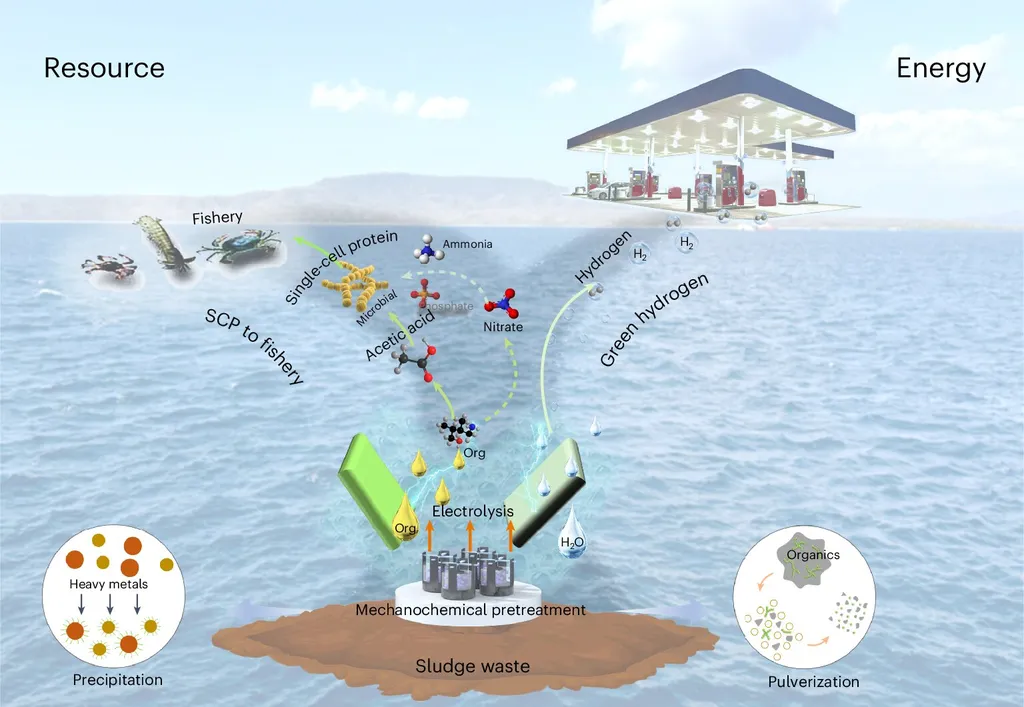In a significant stride towards sustainable energy production, researchers at the Fraunhofer Institute for Environmental, Safety, and Energy Technology (UMSICHT) in Germany have developed a novel thermochemical conversion technology that could revolutionize the way we process biogenic waste materials. The study, led by Wolfgang Gebhard, focuses on the conversion of sewage sludge into high-quality energy carriers like hydrogen and syngas, offering a promising solution to reduce CO2 emissions and dependence on fossil fuels.
The challenge with ash-rich feedstocks like sewage sludge is that they tend to agglomerate and form slag during conventional gasification processes, leading to blockages and operational disruptions. To overcome this, Gebhard and his team developed the Enhanced Carbon-To-X-Output (EXO) process, a three-stage thermochemical conversion method that combines multi-stage gasification with a subsequent reforming step. “The EXO process is designed to handle these difficult-to-treat materials efficiently and convert them into valuable energy carriers,” explains Gebhard.
The research, published in the journal “Biomass Conversion and Biorefinery,” involved systematically investigating the influence of temperature in the reforming step on the gas composition and hydrogen yield. The reformer temperature was gradually increased from 500 °C to 900 °C, with the feedstock throughput of the pilot plant maintained at approximately 10 kg/h. The results were promising: the hydrogen yield increased from 15.7 gH2/kgFeed to 35.7 gH2/kgFeed, and the hydrogen content in the syngas significantly rose from 23.6 vol.% to 39 vol.%.
The implications for the energy sector are substantial. The produced syngas can be utilized for sustainable hydrogen production, serving as a feedstock for subsequent syntheses or for power and heat generation. “This technology not only addresses the challenge of waste management but also contributes to the circular economy by converting waste into high-value energy products,” Gebhard notes.
The EXO process could shape future developments in the field by providing a more efficient and sustainable method for processing biogenic waste materials. As the world seeks to reduce its carbon footprint and transition to renewable energy sources, innovations like the EXO process are crucial. The research highlights the potential for advanced thermochemical conversion technologies to play a pivotal role in the energy transition, offering a pathway to a more sustainable and resilient energy future.

